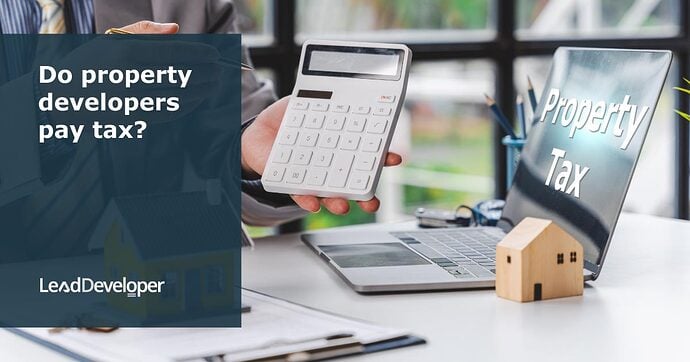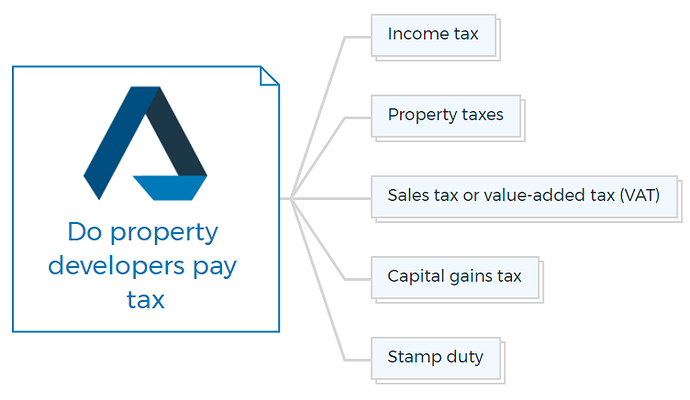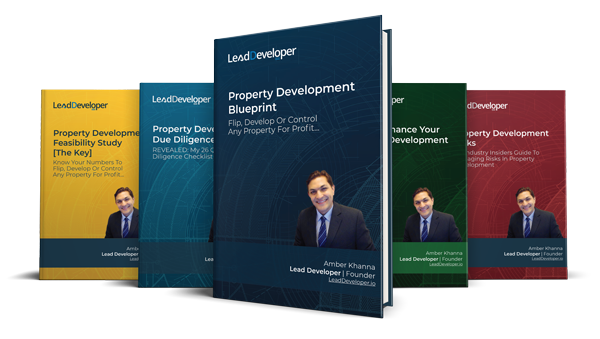Do property developers pay tax?
Yes, property developers are required to pay taxes on their income and profits earned from developing and selling properties.
When starting a property development business, knowing your tax implications while completing a real estate development project is a must.
Property developers typically pay several types of taxes depending on the nature of their business and the specific laws and regulations of the country or region they operate in.
Some standard taxes that property developers may need to pay to include:
Income tax
Property developers must pay income tax on their development projects’ profits. The amount of income tax owed will depend on the developer’s income and the tax laws in their country.
Real estate developers must file income tax on their profits regardless of how they earn the profits.
You are missing out if you haven’t yet subscribed to our YouTube channel.
Property taxes
Property developers may be required to pay property taxes on the land or buildings they own.
These taxes are typically based on the property’s assessed value and can be levied by local or national authorities.
In 2022/2023, property taxes average $400 and 0.3% of land value. If residential, it’s $1,500 plus 1.1% of the land’s worth.
Sales tax or value-added tax (VAT)
Property developers may also be required to pay sales tax or VAT on selling new properties.
How much VAT you will pay depends on the tax rate of your country or region. For example, a reduced VAT rate of 10% when buying a residential property is applied.
The first significant interest grant in residential development is VAT-free. This provision also applies to a partially-built residential building.
Zero-rating applies to the first significant interest grant where the developer has transformed a non-residential building into a house.
Capital gains tax
Often people ask whether property developers pay capital gains tax. The answer is yes!
Property developers must pay a capital gains tax when they sell a property for more than what they paid to purchase it.
Simply understand this as paying tax on any profit you make. In this case, you are working with capital assets; you need to pay CGT.
There are ways to avoid or reduce your CGT on proeprty development. Check out this definitive guide to Capital gains tax in Australia.
Property Development Books - “Starter-Pack”
18 Property Development Books To Get You Started Now
Includes 18 x detailed eBooks
✓ Property Development Checklist - 6 Pages
✓ How To Finance Your Property Development Project? - 13 Pages
✓ Property Development Team - 19 Pages
✓ Site Acquisition Process - 14 Pages
✓ The Ultimate Guide To Getting Started In Property Development - 42 Pages
✓ My Secret Property Development Process - 28 Pages
✓ How To Nail Your Next No Money Down Deal? - 29 Pages
✓ Industry Insiders Guide To Managing Risks In Property Development - 26 Pages
✓ How To Become A Property Developer? - 41 Pages
✓ Do You Have What It Takes To Be A Property Developer? - 12 Pages
✓ 7 Common Mistakes Made By Property Developers & How To Avoid Them? - 12 Pages
✓ 5 Reasons, Buy & Hold Property Investors Fail At Property Development - 16 Pages
✓ 10 Financial Mistakes Made By Property Investors & Developers - 54 Pages
✓ My 26 Question Due Diligence Checklist - 21 Pages
✓ Property Development 101: The Feasibility Study - 34 Pages
✓ Property Development 101: Construction Guide - 55 Pages
✓ Property Development Blueprint - 66 Pages
✓ Your Definitive Guide To Property Options - 36 Pages
Stamp duty
Property developers may be required to pay a stamp duty tax when they purchase land or transfer property ownership in some countries.
It is essential for property developers to understand their tax obligations and to consult with a tax professional if they have any questions or concerns. Failing to pay the required taxes can result in fines, penalties, or legal action.
Learn More





